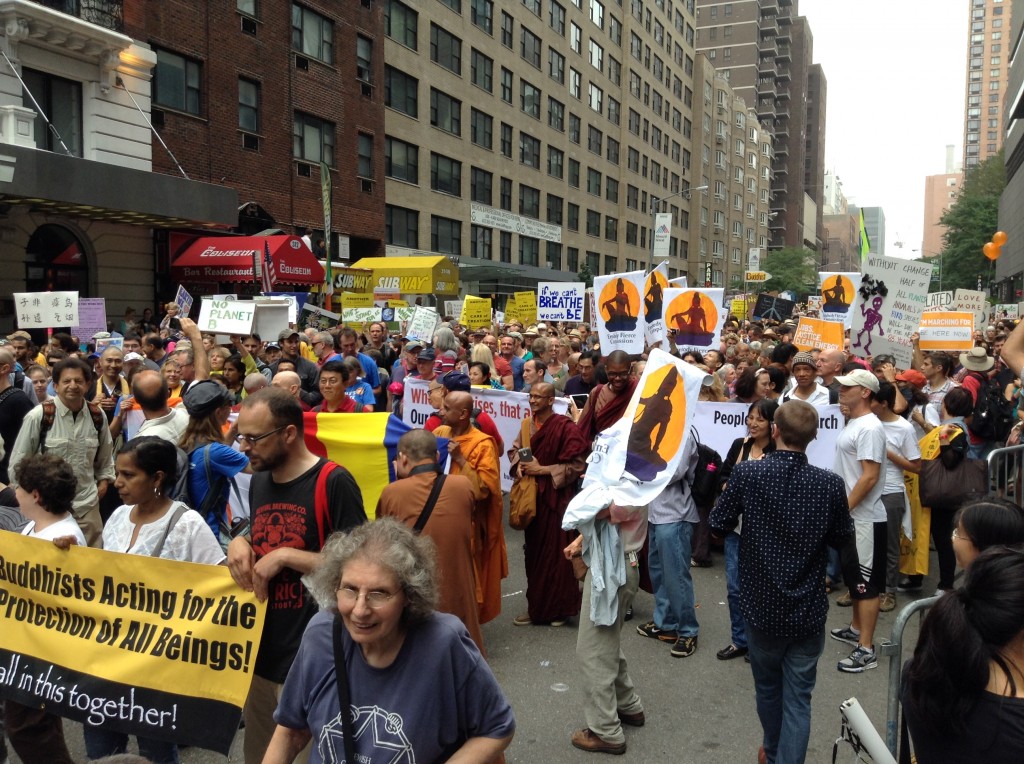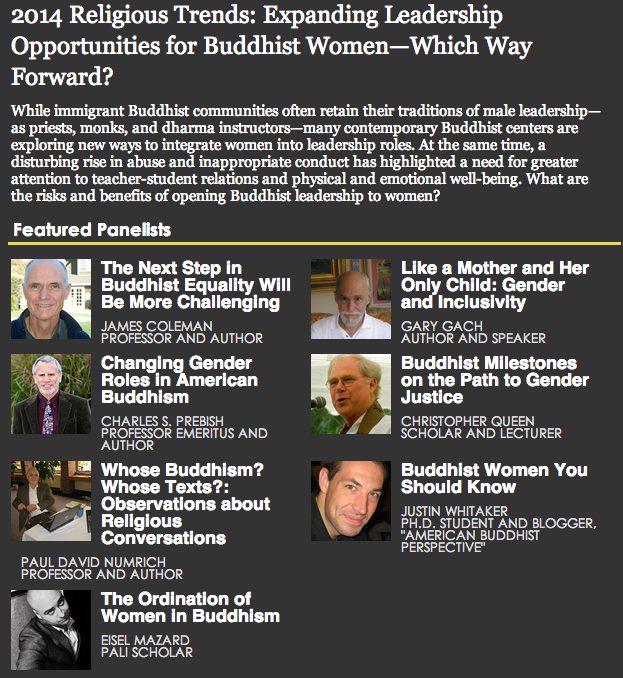
As I write this, the U.S. government shutdown is in its 12th day and 12th hour.
Even though the Patient Protection and Affordable Care Act (H.R. 3590) – derisively called “Obamacare” by the right – was passed into law, and its constitutionality upheld by the Supreme Court, House Republicans have attempted (unsuccessfully) to repeal it 41 times. With democracy standing in their way, the G.O.P. has now decided to force this shutdown on all of us.
This is more than simply a symbolic gesture, mind you: as Nick Kristof pointed out in his New York Times column on Thursday, over 800,000 government employees have been furloughed, the first week of the shutdown alone has cost the country over $1.6 billion, and missing the looming debt ceiling deadline could cost many billions more. In addition, there have been myriad terrible consequences for those who benefit from government services: among many other things, the shutdown prevents children with cancer from participating in potentially helpful clinical trials, cuts off much-needed funding for domestic violence shelters and programs, strands refugees who are seeking asylum in the United States, and is obviously calamitous for veterans and military families.
This is all to say nothing of delaying what good effects there are in the Affordable Care Act. These include: preventing those with preexisting medical conditions from being denied coverage; preventing insurers from charging women more than men for the same coverage; requiring all plans to include free preventative care; and covering 25 million currently-uninsured persons by 2020.
Deeply entrenched positions and lead pipe tactics are nothing new inside the Beltway, of course; but given the stakes involved here, and the exasperating schadenfreude of those causing and exacerbating so much suffering, we might ask, “Where does such staggering indifference come from?” Michelle Bachmann has said that the members of the G.O.P. are “the happiest” they’ve ever been following the shutdown. Why? How could there be so much insensitivity to the plights of so many others?
Right on cue, Dr. Daniel Goleman, the Mind & Life Institute board member and Emotional Intelligence author, blogged for the New York Times last week with at least a partial answer: the wealth and privilege enjoyed by so many of our elected leaders, true believers in free market capitalism and a working meritocracy, seems to have something to do with it. According to “a growing body of research” that he discusses, those with “the most social power pay scant attention to those with little such power.” Much of this has to do with the importance of valuing what you have, which is obviously more important for those who have less. “Those with few material assets are more likely to value their social assets,” writes Goleman. “Poor people are better attuned to interpersonal relations — with those of the same strata, and the more powerful — than the rich are, because they have to be.”
Logically, though, the “the micropolitics of interpersonal attention to the understanding of social power” have serious implications in terms of governance. “In politics, readily dismissing inconvenient people can easily extend to dismissing inconvenient truths about them,” Goleman writes. “The insistence by some House Republicans in Congress on…impeding the implementation of [the Affordable Care Act] may stem in part from the empathy gap.”
He concludes by discussing a study conducted by UC-Santa Cruz’s Thomas F. Pettigrew, who found that “even in areas where ethnic groups were in conflict and viewed one another through lenses of negative stereotypes, individuals who had close friends within the other group exhibited little or no such prejudice.” Goleman notes that while Pettigrew did not study “whether such friendly social contact would overcome the divide between those with more and less social and economic power,” it certainly seems likely that “it would help.”
It could not have been lost on Goleman, one of the hugely important figures in the search for resonance between modern scientific research and the time-tested wisdom of the Buddhist traditions, that all these studies are confirming yet another of the Buddha’s truths: “By craving for riches the witless man ruins himself as well as others.” Throughout Buddhist history, we find it taught that that the accumulation of wealth and social power must go hand-in-hand with morality and a strong sense of social responsibility. Without a solid foundation in ethical practice, the accumulator risks not only harming others but also moving her/himself further and further from her/his own awakening.
In the Aggañña Sutta, for instance, the Buddha points out the callousness of the Brahmins, the highest caste in Indian society, who assert they are born from the mouth of Brahma, the creator god, unlike the lower castes, who they say were born of Brahma’s feet. The Buddha calls this view “false,” and says that “great is the demerit that they thereby earn” for failing to recognize that they were born of human mothers like all others. In a flourish that Pettigrew would no doubt appreciate, he goes on to point out to two Brahmins in the Sangha that they should be able to recognize by living in community with their fellow renunciants from other castes that “both bad and good qualities, blamed and praised respectively by the wise” are equal opportunity.
In addition, the sutta continues in a direction that, as Buddhologist Frank Reynolds puts it, “has attracted the interest of a number of historians and social scientists, primarily because it presents the first expression in Indian literature of what they refer to as a social contract theory of the state and kingship.” From this text, it would seem that the Buddha might concur with Goleman’s point that “tuning in to the needs and feelings of another person is a prerequisite to empathy, which in turn can lead to understanding, concern and, if the circumstances are right, compassionate action [through policy-making].”
Elsewhere, in the Visuddhimagga, Buddhaghosa, the fifth century Indian Buddhist pundit, perhaps demonstrates an intuitive sense of what modern studies are finding. He compares the higher castes’ readiness to study and practice the Buddha’s Dhamma unfavorably with that of the lower castes, writing:
Why does the Buddha mention the farmer caste first? Because farmers have the least pride and they are largest in number… Often the monks from a [high caste] family are proud of their learning… But the young farmers plough their land while all their bodies are running with sweat…Therefore they are not proud…From the other families not very many become monks; from the farmer’s, many.
Here, Buddhaghosa sees a natural humility in the poor, making them perhaps more adept than their more privileged counterparts at walking the path. Might that have something to do with what Goleman and other researchers have observed as better attenuation to interpersonal relations among those with less social and financial power, and the “empathy gap” in those with more wealth and privilege?
While it is vitally important, I think, for all Americans to bravely face the uncomfortable truths that Goleman and other researchers are reflecting to us (and the implications for our prevailing socio-economic theories), as well as for Buddhists to look for echoes in the teachings, the point here is neither to demonize those with a lot of social power nor to exalt poverty — both of those things would be badly wrong-headed, not to mention unhelpful in our collective effort to find a way out of the mess we’re in. The point is to figure out what to do, and starting with the empathy gap looks like the best approach. Indeed, as Goleman put it, “Reducing the economic gap may be impossible without also addressing the gap in empathy.”
Both Goleman and Buddhist thinkers throughout the ages seem to point to the same solution to address the empathy gap among those who wear their privilege with insouciance: social contact with those who are less privileged than they are. When you have well-to-do U.S. Presidential hopefuls who don’t know the cost of a gallon of milk, and who also don’t know that people have to pay for emergency room care, that certainly suggests that more friendly contact couldn’t hurt. And when you have a whole political party united behind a show of political force that has tremendous consequences for everyday people, and they seem dimly aware of and/or even cavalier about that, we as the electorate should be calling for some sort of formal check on the empathy gap.
There are helpful precedents in things like Robert F. Kennedy’s 1968 “poverty tour” across southeastern Kentucky. “For the fortunate among us, there is the temptation to follow the easy and familiar paths of personal ambition and financial success so grandly spread before those who enjoy the privilege of education,” Kennedy said at the time. “But that is not the road history has marked for us.” In 2007, emulating Kennedy, U.S. Presidential hopeful John Edwards went on an eight-state poverty tour of his own. Reflecting on that tour and Kennedy’s, Dee Davis of the Center for Rural Strategies in Whitesburg, KY, wrote powerfully:
People will tell you government doesn’t work. But I’ve seen it work. It starts with somebody showing up and making an effort. I have also seen it fail. Mostly that happens when no one’s paying attention.
More recently, NETWORK’s Nuns on the Bus and Cornel West and Tavis Smiley’s Poverty Tour tried to set an example for politicians and others to begin again with the important work of trying to really understand and address the suffering of those less fortunate.
We need more projects and initiatives like these — projects and initiatives that involve those on both sides of the political aisle — to help close the empathy gap.
In his recent book The Wisdom of Sustainability, engaged Buddhist icon Sulak Sivaraksa considers the vulnerable and impoverished around the world, and says directly that “we need to change direction and build a future based on wisdom and compassion.” To start, it seems clear that we need to look at who we do and don’t pay attention to. As the Buddha taught, if we do that it will benefit not just others but ourselves as well.
Bibliography:
- Buddhism in India: Challenging Brahmanism and Caste by Gail Omvedt. Sage Publications, 2003.
- “The Two Wheels of Dhamma: A Study of Early Buddhism” by Frank Reynolds, in The Two Wheels of Dhamma: Essays on the Theravada Tradition in India and Ceylon, edited by Bardwell L. Smith. American Academy of Religion, 1972.
- The Wisdom of Sustainability: Buddhist Economics for the 21st Century by Sulak Sivaraksa. Koa Books, 2009.











